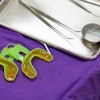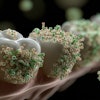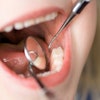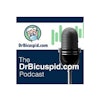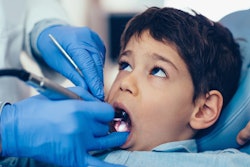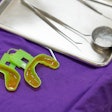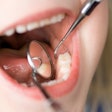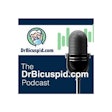Breastfeeding may not contribute to early childhood caries (ECC), but other factors, including early feeding habits, may increase the risk of tooth decay, according to a study published in BMC Oral Health.
Furthermore, regular vitamin D intake and maintaining a balanced diet may reduce the risk of early caries, the authors wrote.
“Evidence-based early feeding strategies, including limiting sugar intake, ensuring an appropriate timing for complementary feeding, maintaining consistent vitamin D supplementation, and promoting dietary diversity, play a key role in preventing ECC,” wrote the authors, led by Zhihong Duan of the Fudan University School of Public Health in China (BMC Oral Health, October 6, 2025, Vol. 25, 1531).
Early feeding practices, including breastfeeding, supplement use, and early diet habits, can influence oral bacteria, shaping a child’s risk for ECC. While sugary foods in infancy are strongly linked to higher caries risk, the role of prolonged breastfeeding is unclear, according to the study.
The study’s goal was to investigate how early childhood feeding practices relate to preschoolers’ risk of ECC in China, focusing on breastfeeding patterns, timing, the types of complementary feeding, and early dietary habits. Researchers analyzed data from 3,505 mother-child pairs, ages 3 to 5, enrolled in the Shanghai Maternal-Child Pairs Cohort, they wrote.
Caries were assessed using the decayed, missing, and filled teeth (DMFT) index. Information on feeding practices was collected through parent questionnaires and 24-hour dietary recalls. Health checkup data were used to assess the consumption of sweets, solid foods, and sugar-sweetened beverages. Nutritional supplementation, including vitamin D, was tracked from birth to age 2, with consistent supplementation defined as receiving supplements at least once a month.
Breastfeeding was not found to be a risk factor for ECC. At six months, children who consumed sweets within the past 24 hours had a higher prevalence of caries. By 12 months, consuming sweets or sugar-sweetened beverages within the past 24 hours further increased caries prevalence. Also, early introduction of complementary foods before 6 months raised caries risk (adjusted risk ratio [aRR] = 1.234; 95% confidence interval [CI]: 1.019 to 1.494), they wrote.
In contrast, consistent vitamin D supplementation from birth to 2 years lowered the caries risk (aRR = 0.980; 95% CI: 0.961 to 0.998), and greater dietary diversity at 12 months was linked to a lower DMFT score (β = -0.222; 95% CI: -0.442 to -0.003). Survival analysis showed that sweet consumption at 12 months shortened caries-free survival time, while consistent vitamin D supplementation prolonged it.
The study, however, had limitations. The findings may not apply to other regions, warranting further randomized and longitudinal studies to confirm the results, the authors added.
“These findings support incorporating oral health and feeding guidance into routine community pediatric visits such as counseling on delaying sugary foods, proper brushing habits, and vitamin D supplementation to reduce ECC risk early,” Duan and colleagues concluded.

